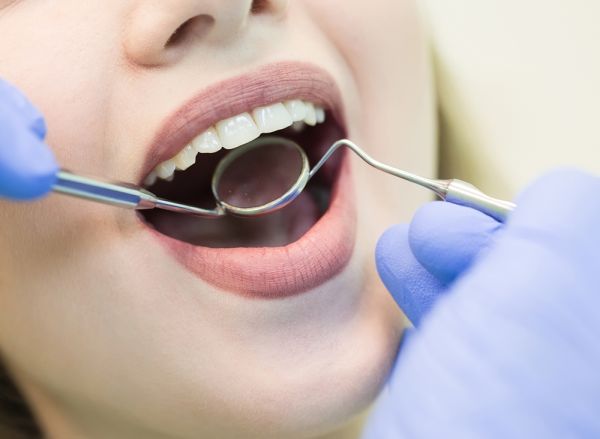Reasons for Dental Sedation During a Dental Visit

The use of dental sedation during a dentist visit, also called sedation dentistry, is typically used for several reasons. Overall the object and focus of sedation during a dental visit is to help the patient relax. Dentists may suggest sedation for people with a phobia of dentists or if the patient needs a more extensive (or painful) procedure. This article is all about sedation, and we are going to look at some of the common reasons why a dentist may recommend sedation dentistry to their patients.
Dental anxiety
One of the most common reasons that a dentist will recommend sedation during a dental visit is if the patient has severe fear or anxiety about going to the dentist. People who opt for sedation dentistry to help overcome their fear of dental visits usually report a great experience that they never thought was possible.
Dental sedation can save trips to the dentist
Some procedures typically require multiple trips to the dentist. The numerous trips are because the process takes an extended amount of time and a person would usually become uncomfortable and tired if it were all in one procedure. However, with sedation dentistry, the patient is relaxed and can handle an extended procedure. This leads to the patient saving time and money and makes the process a breeze.
Helps eliminate the gag reflex
Some people have a very touchy gag reflex, and it can make even a general cleaning uncomfortable and time-consuming. However, with dental sedation, the gag reflex can be controlled or even eliminated for the time that the patient is in the dentist's chair. It helps the dentist complete the procedure without being interrupted by constant flinches from the patient and makes the time much more enjoyable for the patient as well.
Sensitive teeth and gums
For patients that have teeth and gums that are extremely sensitive, sedation can also be a great option. Since sedation relaxes the patient and helps them remain in an almost sleep-like state, the patient will not feel any of the discomfort that they typically would.
Trouble sitting still
Some people are naturally more restless than others. Having to sit in a dentists chair and stay still can be grueling for those people. However, using sedation during a dental visit, cleaning or procedure can make the issue almost non-existent. Although the dentist will not sedate the patient heavily, the relaxed and light feeling the patient will have can help them sit still and pass the time of the procedure quickly. This is another reason dentists will suggest sedation dentistry for their patients.
Have more questions about sedation during a dental exam?
If you would like answers to any additional questions about dental sedation, feel free to give us a call. Our staff is always ready to answer any concerns that you may have and help guide you in making your next trip to the dentist enjoyable and relaxing. Give us a call, now!
Request an appointment here: https://totalcareimplantdentistry.com or call Total Care Dentistry & Implants at (760) 394-3088 for an appointment in our Palm Desert office.
Check out what others are saying about our services on Yelp: Read our Yelp reviews.
Related Posts
Wondering how to practice good oral hygiene? Read on for some helpful tips from a family dentist. Good oral hygiene is a cornerstone of overall health and wellness. Regular visits to a family dentist for checkups, cleanings, and instruction in excellent oral hygiene are essential to maintaining healthy teeth and gums.The family dentist is the…
Dental bonding is a versatile and minimally invasive cosmetic procedure that can address various dental imperfections. This procedure, involving the application of a tooth-colored resin to restore or enhance teeth, offers patients a simple and cost-effective solution for achieving a brighter, more uniform smile. Dental bonding is ideal for repairing minor dental flaws without extensive…
A family dentist is an excellent choice for the entire family. If you are a parent, you know that the health of you, your children, and your partner are a top priority. Often, many parents do not schedule their dental appointments because scheduling conflicts with their children’s. This problem goes away when you find your…
Family dentists are uniquely qualified to offer various dental services to patients of all ages. Children, teens, and adults can visit the dentist for teeth cleanings, checkups, cavity fillings, and other restorative dental procedures. This article will examine the qualifications of family dentists to help you find the right one for your family’s oral health.Becoming…
